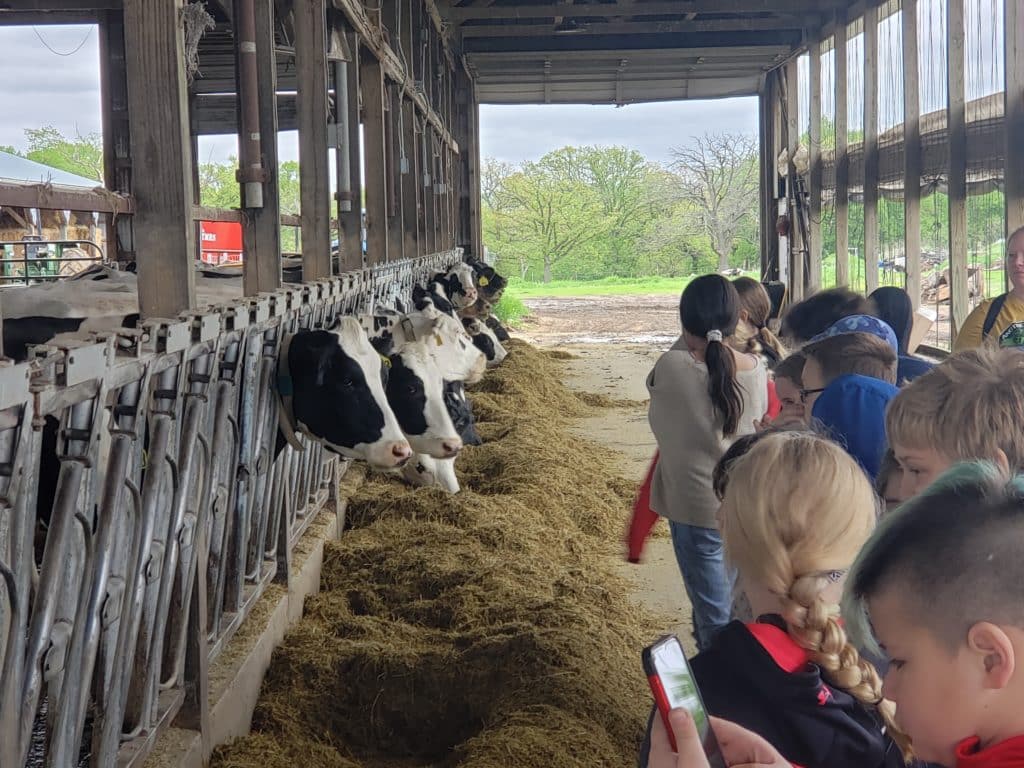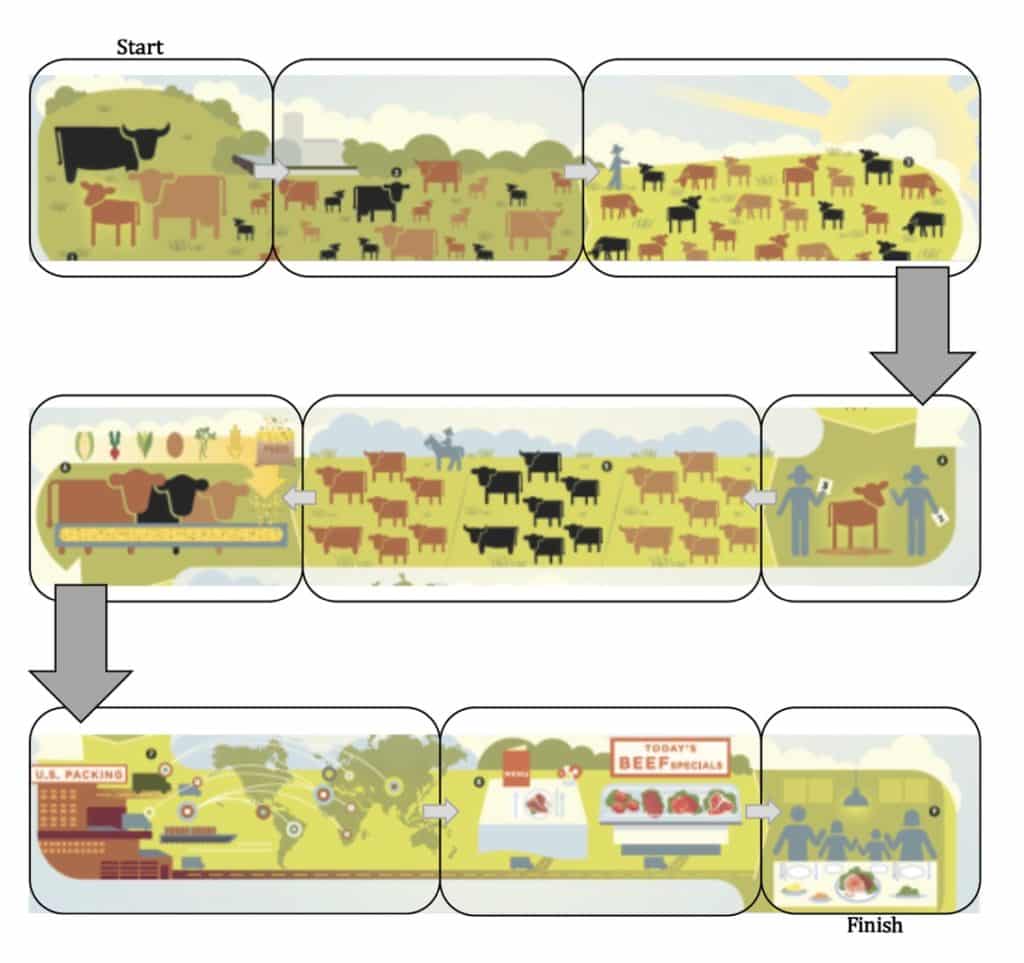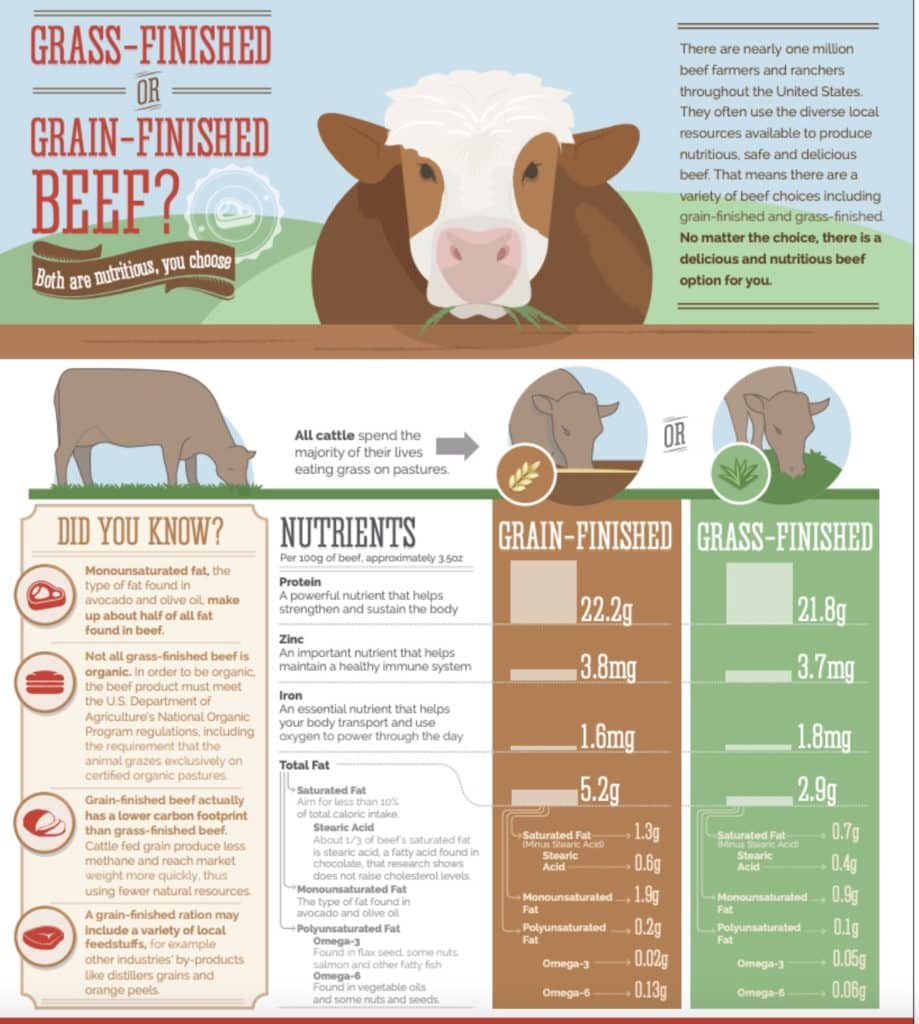Better Learning Experience
Yes, it’s simple as that. We want students to experience a better learning experience. By providing in-classroom lessons, students go to the farm or agribusiness with a background of information, which results in deeper learning.
Studies show in-classroom learning is important prior to Farm Tours
Based on research, “A Review of Research on School Field Trips and Their Value in Education” from the International Journal of Environmental and Science Education, preparing students prior to Field Trips (or in our case, Farm Camp) is very important on the students’ learning experiences.
Per the study: “There is little question that a field trip is a valuable experience for the students, but it is important that the teacher connect the students’ experiences on the trip with concepts and lessons taught in the classroom. The field trip should not be a stand-alone experience.” This is why we incoporate lessons prior to every Farm Camp experience.
So what does this look like in real life?
Visit a Dairy Farm

Prior to touring a dairy farm, here are a couple lessons educators can give their students
From Cow to Carton: Milks Journey to the Consumer (grades 6-8)
Students will explore milk production in the United States and explain the benefits of homogenization, pasteurization, and fortification of milk. Imagine watching this video and then experience a real life dairy.
From Milk: The Scoop on Chemical and Physical Changes (Grades 9-12)
In this lesson, students apply their knowledge of physical science to dairy products to determine if the changes that take place when turning milk into cheese, butter, yogurt, ice cream, whip cream and other dairy products, is a physical or chemical change. Imagine being in a Physical Science class learning about chemical and physical changes and then going to the farm to see where it all starts.
Visit a Cattle Farm
Lessons relating to cattle farming
From The Remarkable Ruminant (Grades 6-8)
In this lesson, students will follow the farm to fork process of producing beef, learn how cattle and other ruminants convert grass into nutrient-rich foods such as milk and meat, discover ways cattle recycle food waste, and identify careers in the beef cattle industry.

From: Beef: Making the Grade (Grades 9-12)
Foods class: Students will evaluate the USDA grading system for whole cuts of beef and discuss consumer preferences and nutritional differences between grain-finished and grass-finished beef. Students will also distinguish various labels on beef products and discuss reasons for the government’s involvement in agricultural production, processing and distribution of food.

Visit a Corn Farm
Lessons relating to corn
From: Energy and Biofuels (Grades 9-12)
Through a series of activities, students explore fermentation and ethanol production, observe the role of enzymes in fermentation, analyze nutrient values of dent corn, and discover how biofuels are made from plant oils. This lesson can be paired with a visit to an ethanol plant or corn farmer.

Reasons Why Farm Camp Experiences are Important for Students
Additional information from the study on why combining in classroom learning with Farm Camp Experiences:
“Teachers often utilize worksheets to help students focus on exploring and learning the targeted concepts. Worksheets are quite effective when one worksheet is given to a small group, in which the students are better observers, interact more frequently, discuss the concepts, and ultimately develop more connections between the concepts and the experience (Kisiel, 2003; Rennie, 2007). Simple fill-in-the-blank task completion worksheets are not effective, when every student is responsible for his or her own data, where the focus is solely to fill in the data and not to explore or participate in activities (Kisiel, 2003).
Students respond to a field trip in a variety of ways. Average students may suddenly reveal a never seen before level of excitement, focus, and inquiry (Hefferan, Heywood, & Ritte, 2002). Conversely, some students known for strong classroom performances might be less proficient in the field and may or may not enjoy the challenge to succeed in the new, informal environment. Each student is unique and each field experience is unique, so that every field experience will result in many different academic, cognitive, and social gains (Rennie, 2007). Student prior knowledge and experience define the cognitive foundation onto which new connections can be made (NRC, 2009). If done properly, students will build long term memories of the field trip experiences, especially among high school and college students (Wilson, 2011).”
An important reason our Farm Camps are impactful.
For more information, please go to Farm Camp website.
